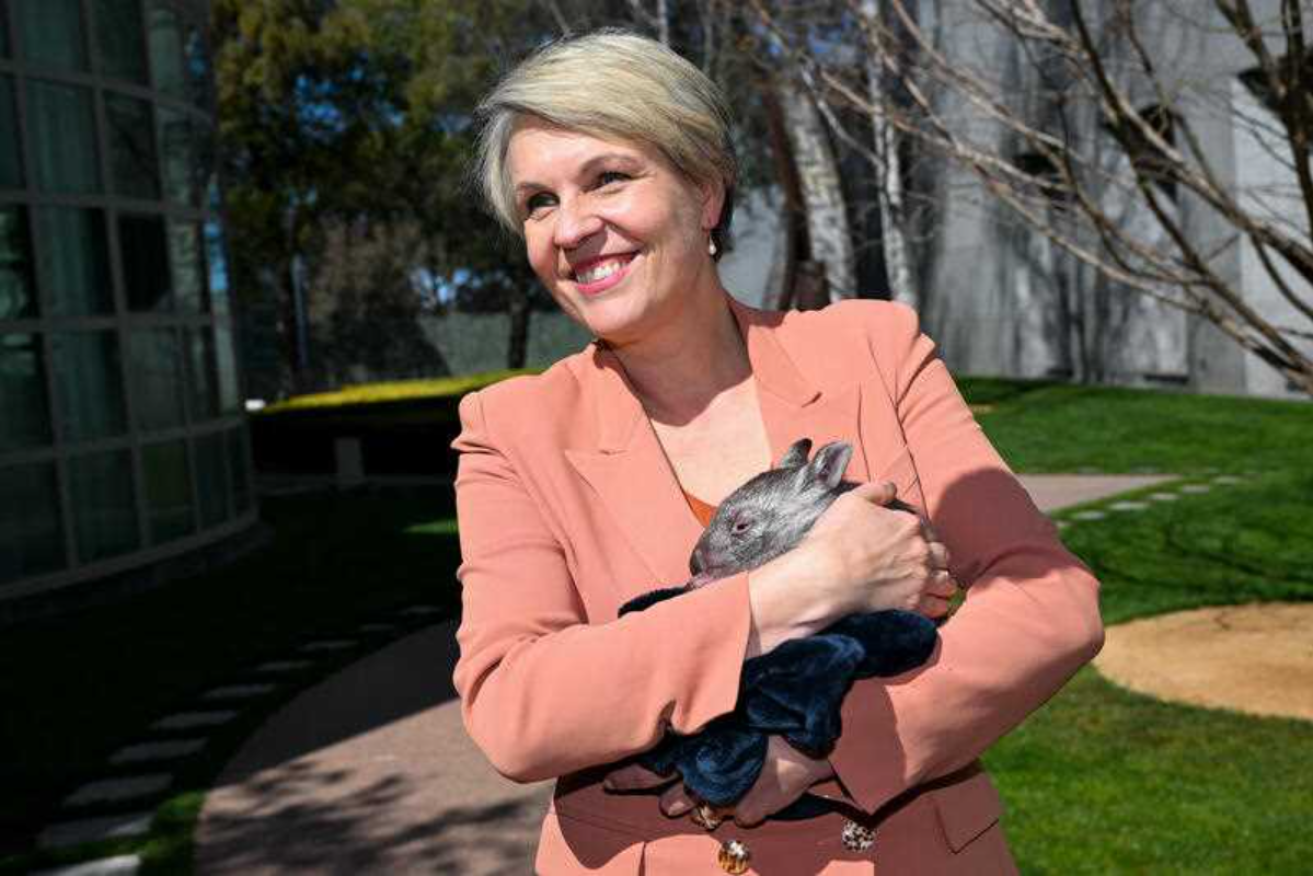New environment watchdog gets mixed reaction
Labor’s environment watchdog has received a lukewarm reception from conservationists who argue it must be backed up by law reform to stop mass extinctions, but miners and developers welcome the streamlined approvals process.

Australian Environment Minister Tanya Plibersek says Environment Information Australia will provide businesses with easier access to the latest environmental data. Photo: AAP/Lukas Coch
The new national environment watchdog won’t be enough to stop mass extinctions in Australia unless it is supported by fully-fledged law reform, conservation groups say.
World Wildlife Fund Australia chief executive Dermot O’Gorman said the Environment Protection Agency announced on Tuesday was an important step but the federal government must follow through with the rest of its plans.
“Establishing an (environment protection agency) could be a real game changer for the environment,” O’Gorman said.
“An (agency) alone will not prevent new species extinctions.
“The government needs to finish the job it started in 2022 and deliver the comprehensive reform package it announced it would do this term.”
Environment Minister Tanya Plibersek had promised the government’s Nature Positive Plan – which includes reforms to Australia’s marquee Environment Protection and Biodiversity Conservation Act – would go to parliament by the end of 2023.
But the plan has been split into components and kicked other elements down the road to later in 2024, conservationists argue.
Plibersek announced the establishment of Australia’s first national, independent Environment Protection Agency along with an information and data body called Environment Information Australia.
The environment watchdog will be given powers to issue Environment Protection Orders, also known as stop-work orders, to those in breach of the law, and audit businesses to ensure they are compliant with environmental approval conditions.
Maximum fines for extremely serious intentional breaches of federal environment law have also been increased to $780 million or a jail term of seven years.
The agency leader will be an independent statutory appointment, similar to the Australian Federal Police Commission, ensuring government can’t interfere with its work.
The Property Council of Australia supported the changes, particularly the ability of businesses to engage with the approvals process “as this will be critical to ensuring the EPA can deliver quicker environmental approvals under our national environmental laws”.
The council also supported the commonwealth government leadership on a national strategy, research and funding to preserve habitats for key threatened species across all states and territories.
However, many environment groups believe Labor is moving too slowly after data from the Australian Conservation Foundation showed more species were added to the national threatened species list in 2023 than in any previous year.
In early April, it was discovered that coral bleaching driven by climate change had hit three-quarters of the Great Barrier Reef, with 50 per cent of the World Heritage site suffering high or very high levels of damage.
According to Greenpeace, a native animal is killed every second by deforestation in Australia and tens of thousands of hectares of koala habitat have been bulldozed without environmental assessments.
Conservation Foundation CEO Kelly O’Shanassy says Australia is in the midst of an “extinction crisis” and the agency needs to be complemented by significant law reform after the 2020 Samuel Review found Australia’s main environment legislation was failing.
“Without comprehensive reform, the (agency) will be enforcing a flawed and ineffective law that still needs serious surgery,” she said.
Greenpeace Australia Pacific head Glenn Walker wants the agency to be given powers to assess and reject large coal and gas projects, where the climate impacts on nature are found to be significant.
“It’s completely untenable that the existing nature law fails to allow this,” he said.
“Weak laws and government inaction have made Australia a world leader in deforestation and biodiversity destruction.”
The Association of Mining and Exploration Companies (AMEC) welcomed the Nature Positive reforms being broken up into further stages.
AMEC chief executive officer Warren Pearce was pleased that “the majority of environmental reforms will now get the public consultation process they deserve”.
“This will enable industry to properly engage in the process and understand the potential benefits or consequences of these changes,” he said.
Pearce said it was a move forward from the secrecy and closed-door meetings currently in place.
“We also welcome the sorely needed extra funding towards faster environmental approval decisions on projects,” he said.
“At a time when the Prime Minister is speaking about becoming more competitive with the rest of the world, it’s imperative that the Nature Positive reforms don’t create an added layer of bureaucracy for an industry that is most critical to decarbonising our economy.”
Plibersek said Environment Information Australia will provide businesses with easier access to the latest environmental data, release state of the environment reports every two years instead of five and report on progress on national environmental goals.
The new bodies will be complemented by a $100 million commitment to speed up environmental approval decisions, more funding for research into threatened species, and more support to help businesses with compliance.
But Greens Senator Sarah Hanson-Young said the government was “selling out” Australia’s environment by creating a watchdog without teeth while capitulating to the fossil fuel industry.
Opposition environment spokesman Jonathon Duniam said the proposals were a failure for the environment and would act as a handbrake on the economy.
– with AAP




